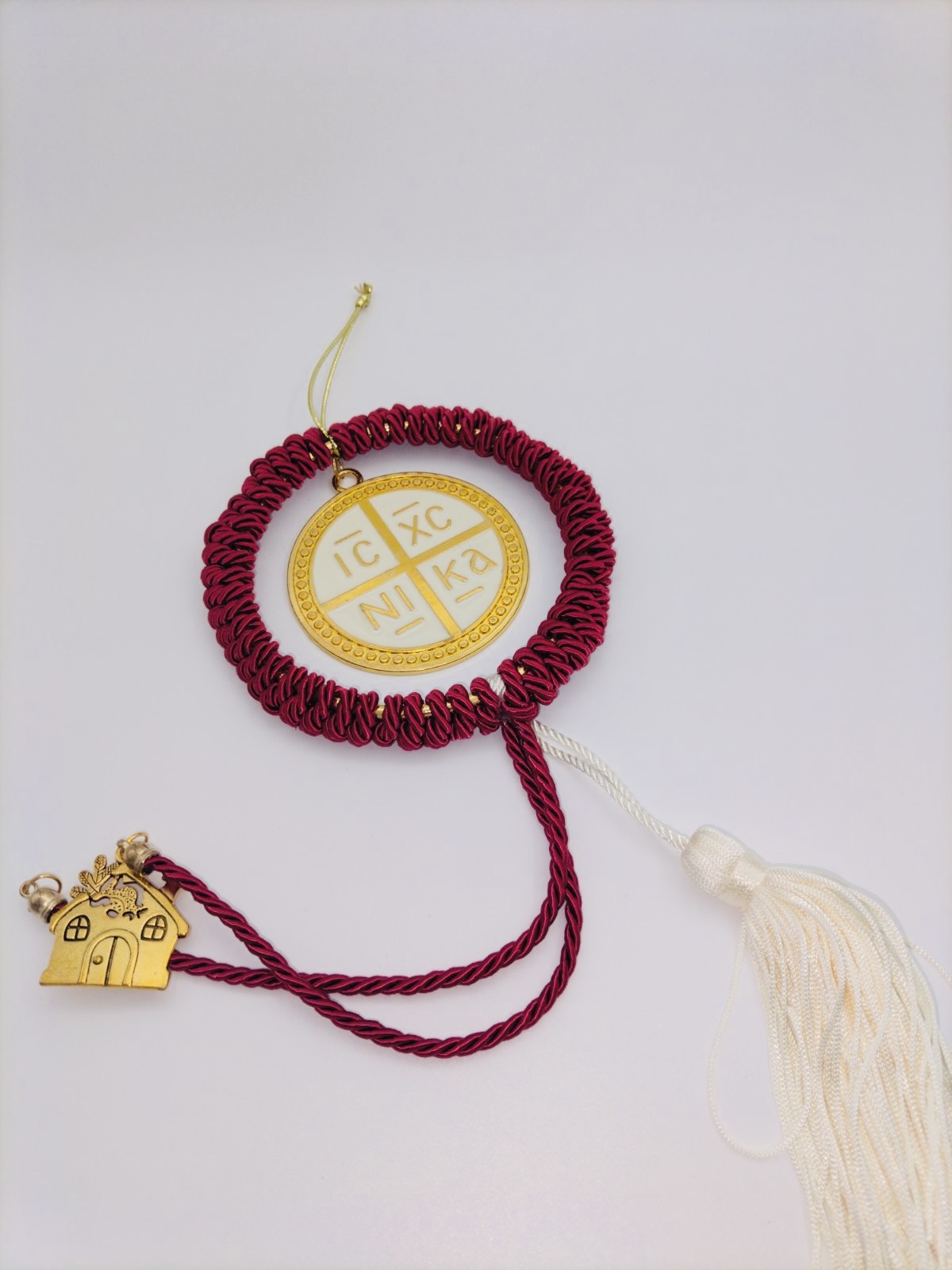Nothing but white flour, salt, water & yeast
By Subdeacon George Aquaro
Note: this paper is not meant to point fingers and accuse, but rather to call all of us to follow the Traditions lovingly handed down to us from our Fathers and Mothers in the Church. Sadly, the lack of education and strained bonds to our Mother Churches have allowed some unorthodox practices to take root in certain parishes, but we know the Holy Spirit is correcting these problems even as we speak. I ask that you copy this paper and distribute it in your parish if you identify the issues mentioned here as problems with your parish prosphora. Very often, our beloved clergy are very aware of these problems with prosphora, but out of love hold their peace so as not to hurt the feelings of those who work so hard at baking. If you do copy this paper, please remember the love we have for one another in Christ, and that these issues must be addressed in Christian charity, not harsh condemnation! Keep the Traditions, but don't bash people over their heads with them!
Purity
The only ingredients in prosphora are white flour, water, salt and yeast. Simply put, the Holy Traditions mention nothing else! When we begin to add things to the pure bread, what are we saying about it? That it isn't sufficient on it's own? That people won't like it if we don't add something to it? Prosphora becomes the Body of Christ in the Eucharistic celebration. Think about what you are saying about the Bread of Life when you add things according to taste. Do we add things to our Faith to make it more tasteful? Or, when we partake in the simple bread of prosphora, do we remember that our Lord came as a simple carpenter and endured our poverty out of love for us?
No Oils
I know many a priest who fears the loaf with oil or lard added to it. This type of additive is the most insidious, often turning the chalice into a mini-reenactment of the Exxon Valdez disaster. Fats and oils create a number of hassles for the priest. I shall list a few everyone should think about:
It Floats - oils and fats added to prosphora negate one of the bread's primary physical missions: to absorb the wine. Oils make the bread waterproof, thereby causing the bread to rise to the top of the wine.
It Hardens - oils in dough harden when baking, giving the bread a chewy texture. This forces the priest to have to break up the bread forcibly with his spoon after placing the pieces in the chalice. Normally, the wine does this for him (think of a soggy piece of white bread and how it turns to mush. Now think of Italian bread, baked with olive oil, and how it holds together much better even when sopping wet with minestrone soup). This also makes his distribution of the Holy Gifts all the more challenging.
Oil Slick - the oils also leach out of the bread and into the chalice. This is where the image of the Exxon Valdez comes in. Remember all the oil that leaked out on the Alaskan coast? Well, oils added to prosphora leak out of the bread in the chalice, especially with the high alcohol level of the sacramental wine acting as a solvent. This oil then coats the inside of the chalice and the spoon. This makes cleaning the chalice harder for the priest. Not only that, but since soap is not usually used to clean the chalice, oil can lead to an unhygienic buildup in the chalice and on the spoon, much as you see with lipstick.
No Spices
Remember what was said earlier about purity? Well, there something else to add to this subject.
Not everybody likes the same spices - Added flavorings are enjoyed by some people but disliked by others. Why add something to prosphora which is guaranteed to offend? Keep it same and leave out the vanilla, mahleb, cinnamon or whatever else you might be tempted to add for flavoring.
Chemical Reaction - some spices react chemically with the metals. This can accelerate tarnishing and even damage surfaces with time.
Yeast Retardation - spices like cinnamon actually retard yeast growth, making it the bread rise slower and less evenly.
No Sugar
There is absolutely no good reason to add sugar to prosphora. It often over-excites the yeast and froths the dough. Not only that, but the sugar in the crust of the bread crystallizes, causing a flinty texture which your priest won't appreciate when doing proskomedia.
No Whole Wheat Flour
Some people think that whole wheat flour is somehow more natural and therefore more appropriate for prosphora. Nothing can be further from the truth, and whole wheat flour should be avoided unless there is no other option.
First, whole wheat flour was never used in the early Church. White flour was always used, since it was more expensive that the brown variety and the loaf was quite literally a sacrifice for those who provided it.
Second, whole wheat flour is merely the same grain as the white, except with the outer shell ground in with the kernel. While this has some nutritional value, you would have to eat a LOT of antidoron to get any value from it!
Third, whole wheat flour is harder to work with. It takes longer to rise and creates less regular bubbling.
Fourth, whole wheat flour makes a harder crust.







